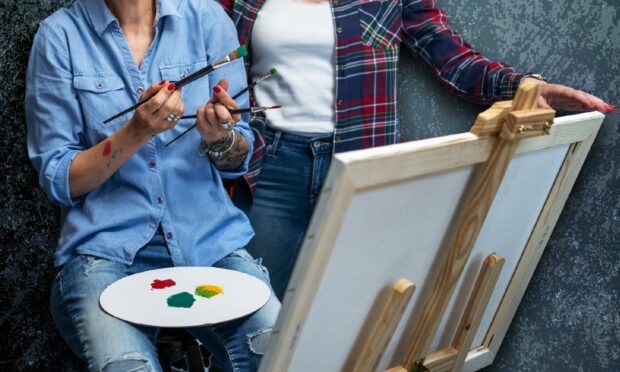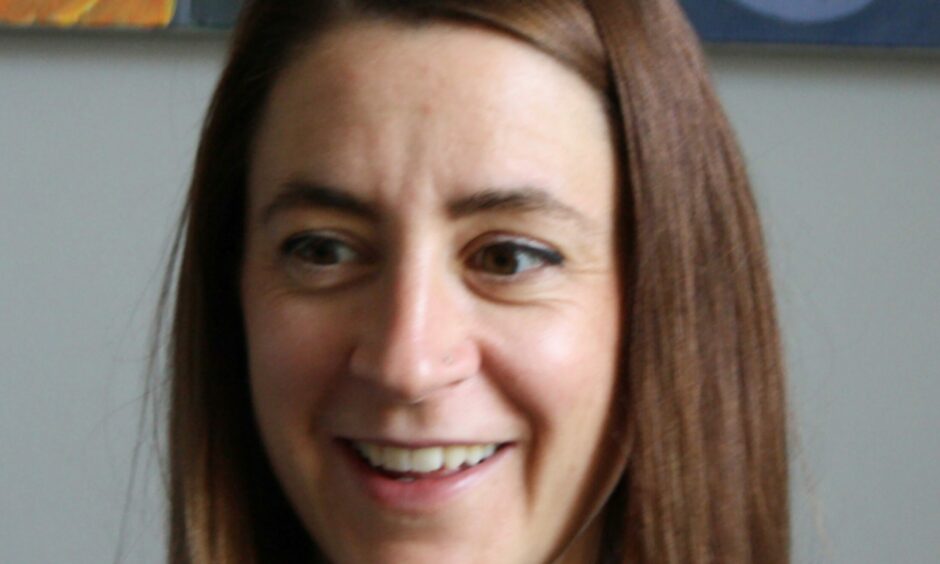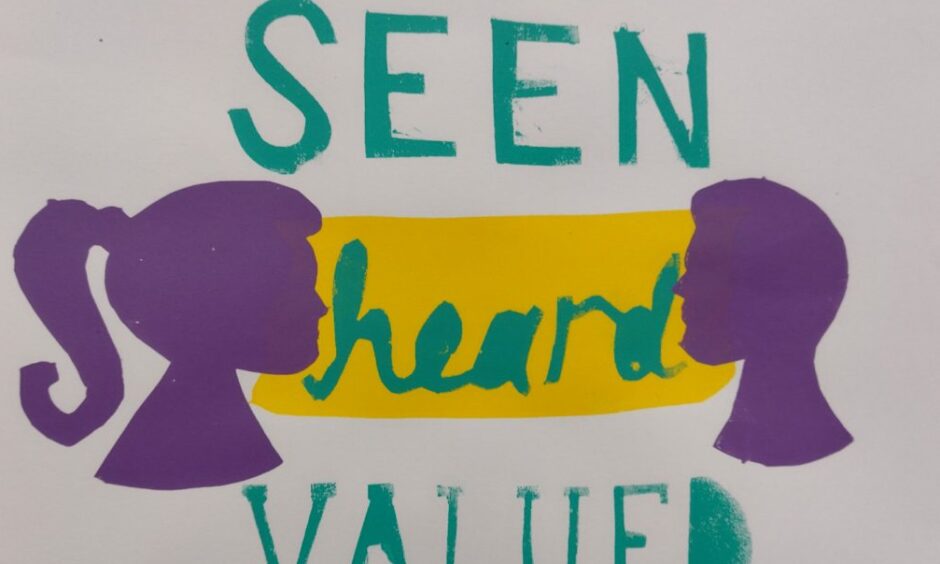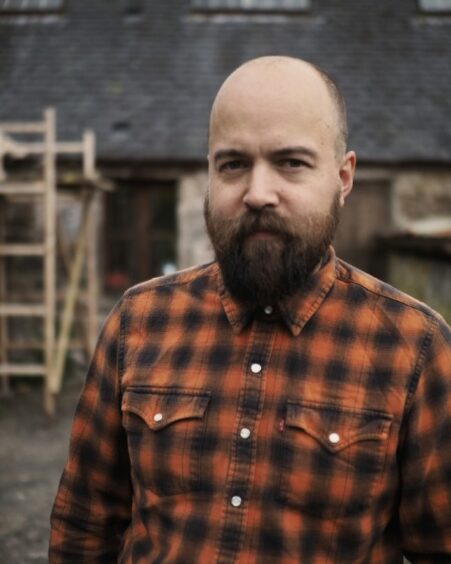For the people artists Catriona Meighan and Hector MacInnes work with, taking part really is more important than the result.
Choice is a word both use to describe what they do, offering creative opportunities for prisoners and survivors of domestic abuse.
As part of the Highland Culture Collective, they are part of a national pilot programme set up to respond to the pandemic and its effects on different communities.
Catriona and Hector are among six artists in residence working in the region.
Empowering and increasing confidence
Part of Hector’s work is with inmates at Inverness Prison, while Catriona holds sessions with Women’s Aid groups and with the Caledonian System programme, which helps to change men’s behaviour, while supporting women and children.
A visual artist, Catriona says her work with printmaking, painting, writing and collage can be a small but significant way of returning confidence to women, some of whom have been left isolated and alone.
“We are not going to fix people. When you look at what people have endured, the trauma they are working with and the psychological impact that has, you’re not going to sort that.
“But when women are able to engage and articulate the benefit of being involved in a creative session, it can be about trauma recovery, if only a small part of it.
“It can be about empowerment, increasing confidence and being able to make their own decisions.
“If you’re coercively controlled, you may be isolated daily and it may be a challenge when coming out of that.”
She says being part of a group, in a safe, non-judgemental environment, is important.
“Having the choice to take part is key because in some cases they may not have had choice due to the way they have been treated.
“Just turning up can be a massive step change for some people who might not have been allowed out to see other people for years.
“It’s also the strength of being in a group. Realising you are not alone, you are not the only one to have suffered abuse and trauma.
“A group of people might not be friends, and maybe thrown together because of experiencing similar situations, but it can have a positive impact for some time.
“If you can just make a small difference to somebody’s life and their outlook, it’s immensely rewarding.
Feedback is positive and encouraging
“But, this is just a handful of women I’m working with. There are so many more unable to engage and still in abusive relationships. It’s a huge societal problem.”
She says feedback from the women has been positive and encouraging.
“We don’t really talk about what happened to them. It’s more of a shared understanding that is inherent to being there, together, participating.
“It’s good to be able to talk freely in a group setting and not feel that you will be judged or anything will come of it. It’s a release.
“In general there is a feeling of loving being able to try something new and a clear articulation of how that benefits their recovery alongside other things they do, in a holistic manner.
“Also their confidence grows. One woman noted she would not have had the confidence to try something new previously.
“She is now able to see that she can do that and how beneficial it is for her.”
Inverness Women’s Aid manager Elaine Fetherston said the artists in residence project helps women explore ways to help rediscover their confidence and power through creative activities.
“Many of the women we help have experienced high levels of psychological trauma because of their abuse experiences.
“Being part of an innovative and supportive group can really help them to recover from their experiences.
“Feedback from our clients has been incredibly positive and we hope we can continue these activities into the future.”
Working with prisoners
Hector MacInnes has been working with groups of between four and eight prisoners, including convicted and on-remand inmates.
With them he has created an “improvisers orchestra”, co-designing iPad interfaces that allow the inmates to create electronic music in a group setting.
The results were entered in this year’s Koestler Awards for arts in criminal justice.
“I try not to fix new problems with old solutions,” he says.
“But it has highlighted to me the scale and nature of problems around digital literacy and access to the arts within the prison environment, even accounting for the enthusiasm and effort that the staff at HMP Inverness have put into this project.
“The feedback has been really good. They enjoy taking part in the sessions and can learn new skill sets while learning about technology.
“But what’s really important to me is that access to music and the arts be seen as a basic human right.
“Incarceration is the nature of the punishment, but you can and should still be provided with access to creativity.”
He said working in different settings, such as prisons, schools and carer organisations, is incredibly rewarding.
“It constantly challenges the way I would do things if left to my own devices.
“That makes it a learning experience for me and something that enriches both my own practice and future socially engaged projects.”
Are you interested in more exclusive and breaking Highland and Islands news from the P&J? If so, why not join our dedicated Facebook page HERE




Conversation